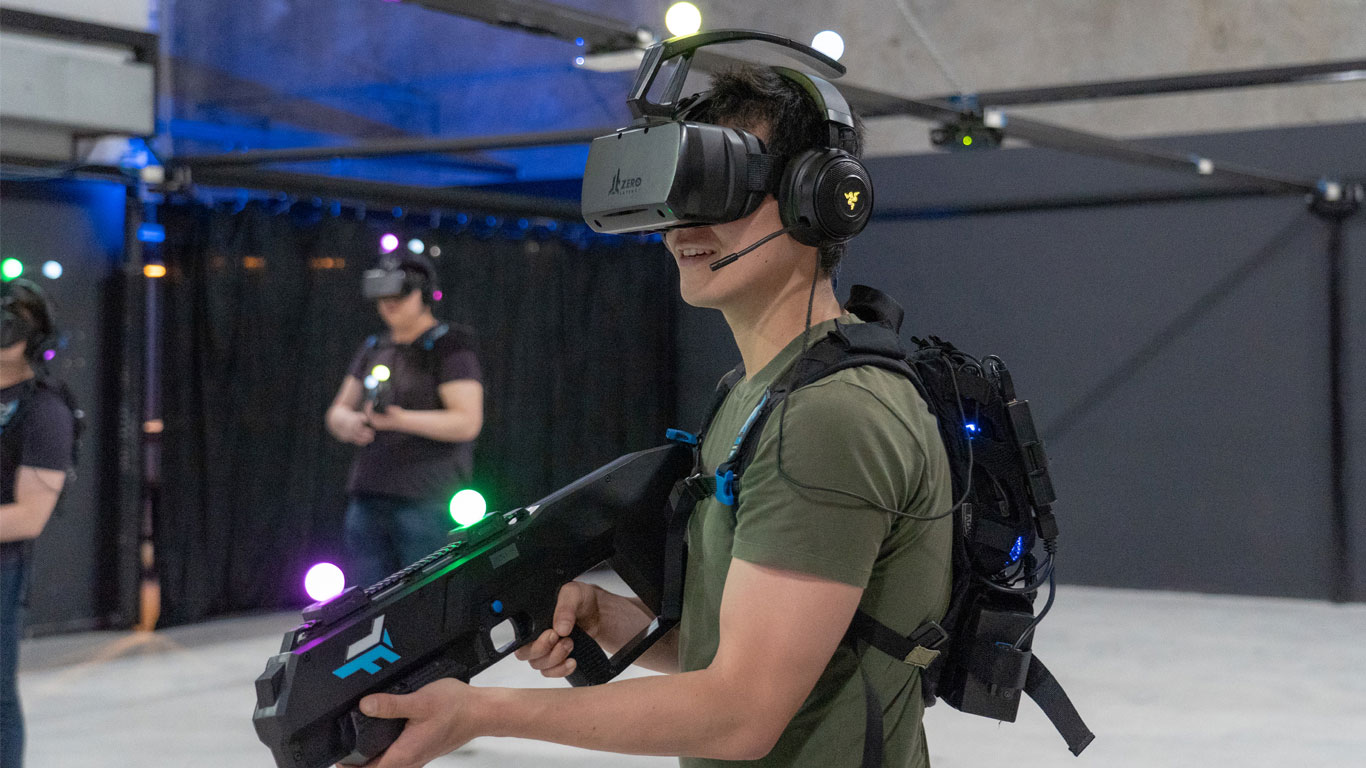Intel, Microsoft, HP Get Onboard With Multiplayer VR Facilities
Updated, 01/24/2019, 7:30pm ET: The original version of this article indicated that Zero Latency would not be using HP backpacks. However, Zero Latency sent us an update that clarified that hardware choices have not yet been finalized.
Zero Latency, one of the early pioneers of location-based, warehouse-scale VR entertainment, today revealed partnerships with three major players in the tech industry. Microsoft, HP and Intel have signed on to help build the next-generation of Zero Latency’s platform.
Zero Latency is stepping its game up for the next-generation of its VR entertainment platform. Under the new partnership, Microsoft will bring the Windows Mixed Reality platform to the next version of Zero Latency’s free-roam, multiplayer VR facilities. HP and Intel are also onboard and would provide the hardware that powers Zero Latency’s facilities.
Zero Latency’s current platform includes backpack PCs and modified open source virtual reality headsets. Zero Latency has not yet confirmed what headset will power the new platform. However, HP’s involvement with the project is a strong indicator that HP Windows MR headsets are part of the package.
Zero Latency didn’t offer many details about the hardware it will use, and it’s unclear how much involvement each company has in the development of Zero Latency’s platform. However, Zero Latency is supposed to use the Intel NUC VR platform equipped with Core i7 processors.
Microsoft also said that the project involves its cloud-based services, which we assume would facilitate the multiplayer experiences that Zero Latency has to offer.
Zero Latency did not give any indication as to when the next-generation facilities would debut but said it would reveal more details soon.
Get Tom's Hardware's best news and in-depth reviews, straight to your inbox.
The company currently operates 24 warehouse-scale multiplayer VR facilities across the U.S., UK and 11 other countries (Canada, Japan, Macau, Malaysia, Mexico, Portugal, Singapore, South Korea, Spain and Thailand). Its U.S. locations are in Arizona, Florida, Massachusetts, Nevada, Oklahoma, Pennsylvania and Wisconsin. The company offers five unique multiplayer VR experiences.
Kevin Carbotte is a contributing writer for Tom's Hardware who primarily covers VR and AR hardware. He has been writing for us for more than four years.
-
bit_user Are these the same folks that launched with OSVR HDK2-based headsets?Reply
I know a guy who went to one of their experiences, a while back, and had basically all good things to say about it.
